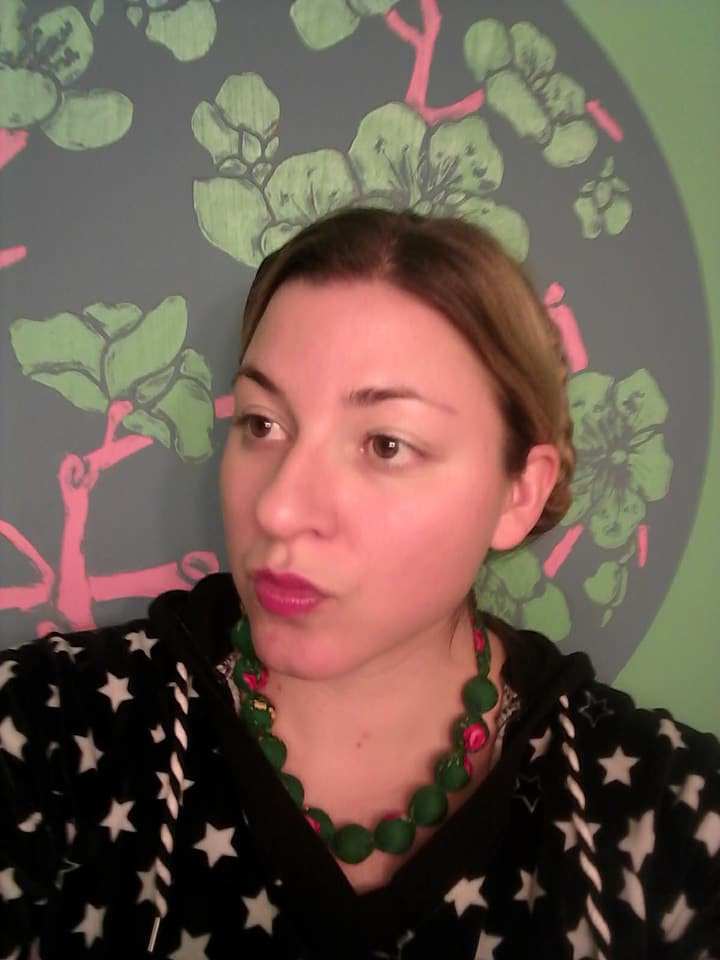ISSN: 1941-4137
POETRY THAT ENACTS THE ARTISTIC AND CREATIVE PURITY OF GLASS
POETRY THAT ENACTS THE ARTISTIC AND CREATIVE PURITY OF GLASS

Natalie Solmer is the founder and Editor-in-Chief of The Indianapolis Review, an online journal of poetry and art. She teaches composition and writing in various institutions all over Indianapolis, and lives a mile from the famous Indy 500 racetrack. Her work has been published in journals such as Willow Springs, Glass: A Journal of Poetry, Cimarron Review, Tinderbox and forthcoming from MidWest Review.
Also by Natalie Solmer:
The children keep saying Where did daddy see that snake?
What Did My Baby Daddy and I Do to Each Other in Past Lives?
Portrait of the Divine with Severed Head and Blue Lotus Stem
Previously in Glass: A Journal of Poetry:
Floral Lady: Winter
Place the Lightning Bolt in Your Hair
I know you have been eating bitter apple blossoms
for 20 years and are tired.
Each time the love of your life comes and goes with a season,
you begin to think of death.
I say now: pluck the lightning
bolt from your cloud and use it to pin up your hair —
the braids you braid in anger now
for too long you have seen the blot
of your father’s father’s suicide
around you. You say under all anger
is hurt, and your heart is just an orchid
covered in snow.
But I say you will die this way.
I say stop crying in the garden,
and gather flowers in anger,
set them on your altar in anger. Light the candle
and watch it melt.
Remember your people once worshipped rocks and trees,
Remember how you craved the woodland
while the baby
inside you sucked down
every bit of magic like nectar and stretched your belly?
You left campus, poverty at your heels,
your family not speaking to you —
woman who followed the smell of trees.
You were led to the green
goddess of underworld. She stood bare-breasted in flower beds.
You ran from what tried to kill you. You must continue to run,
your gray fleece open and flapping to take flight
from the street.
Don’t worry if your birthday falls
on old Kupala night. Throw your wreath into the river.
Ask the black stork to steal your crown
from the men.
It might be best if you never marry.
You already know the secret — ferns don’t bloom
My grandparents on maternal and paternal sides emigrated from Eastern European countries, and at times I study Slavic mythology and history in an effort to understand them, or more accurately, myself (Sidenote: I learned that I was, in fact, born on Kupala night). Any talk of where my grandparents came from was forbidden, and when asked about it, they would deflect. This poem began with lines referencing Slavic myth and went to very unexpected places, including referencing the struggles I faced with my decision to have my first child, and the growing realization that I needed to learn how to allow myself to feel anger as an essential part of combating depressive tendencies. I think it’s helpful to recognize what has been passed down to us: whether that is the narrative that it’s not OK for women to be angry, or in the case of my family, to suppress and hide so much of ourselves.
Glass: A Journal of Poetry is published monthly by Glass Poetry Press.
All contents © the author.
All contents © the author.





